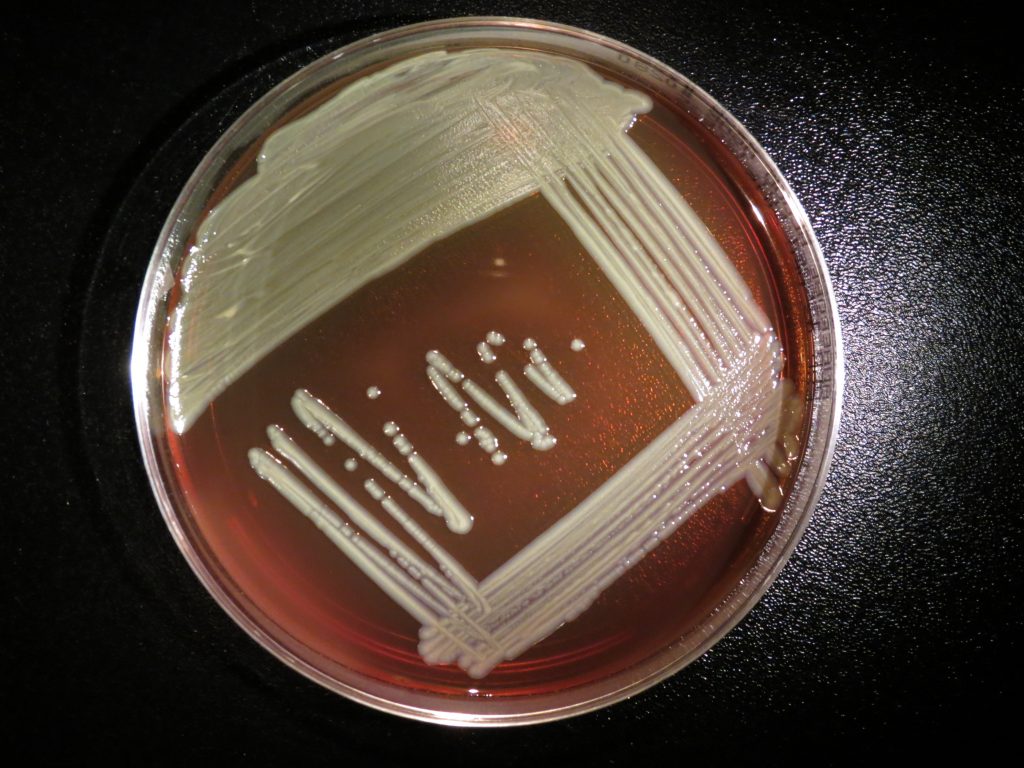In a follow-up to previous reports on the Elizabethkingia anophelis outbreak in Wisconsin, state health officials report that the Wisconsin State Lab of Hygiene (WSLH) has completed testing of laboratory specimens of two suspected cases of Elizabethkingia submitted last week, and determined one of those cases is related to the outbreak, bringing the number of confirmed cases of Elizabethkingia anophelis associated with this outbreak to 60.

Image/CDC’s Special Bacteriology Reference Lab
In addition, four possible cases have been reported; however, they cannot be confirmed due to lack of sample for testing.
There have been 18 deaths among individuals with confirmed Elizabethkingia anophelis infections and an additional 1 death among possible cases for a total of 19 deaths. It has not been determined if these deaths were caused by the infection or other serious pre-existing health problems. Counties where these deaths occurred are: Columbia, Dodge, Fond du lac, Milwaukee, Ozaukee, Racine, Sheboygan, Washington and Waukesha.
Most of the people affected by this outbreak are over 65, and all have serious, underlying health conditions. None of the confirmed cases associated with this outbreak are children.
According to State Health Officer Karen McKeown, this is the largest known outbreak of this strain in the United States. “Disease detectives in our Division of Public Health (DPH) have been working aggressively, with assistance from the Centers for Disease Control and Prevention (CDC), to locate the source of the outbreak,” said McKeown. “Since the onset of the Elizabethkingia anophelis outbreak, we have worked diligently to provide accurate, comprehensive information, and to prevent the spread of misleading information that can lead to unwarranted fear among the public. Our top priority is the health and safety of the people we serve.”
Late last week, Governor Scott Walker received a letter from Democratic legislators expressing concerns about the DPH investigation of this outbreak. On Tuesday, DPH, the lead agency in the Elizabethkingia anophelis investigation,responded to the letter.
Elizabethkingia anophelis are bacteria that are rarely reported to cause illness in humans, but can cause infection that may be life threatening among people with compromised immune systems.
Related:


2 thoughts on “Wisconsin Elizabethkingia update: 60 confirmed cases, None in children”